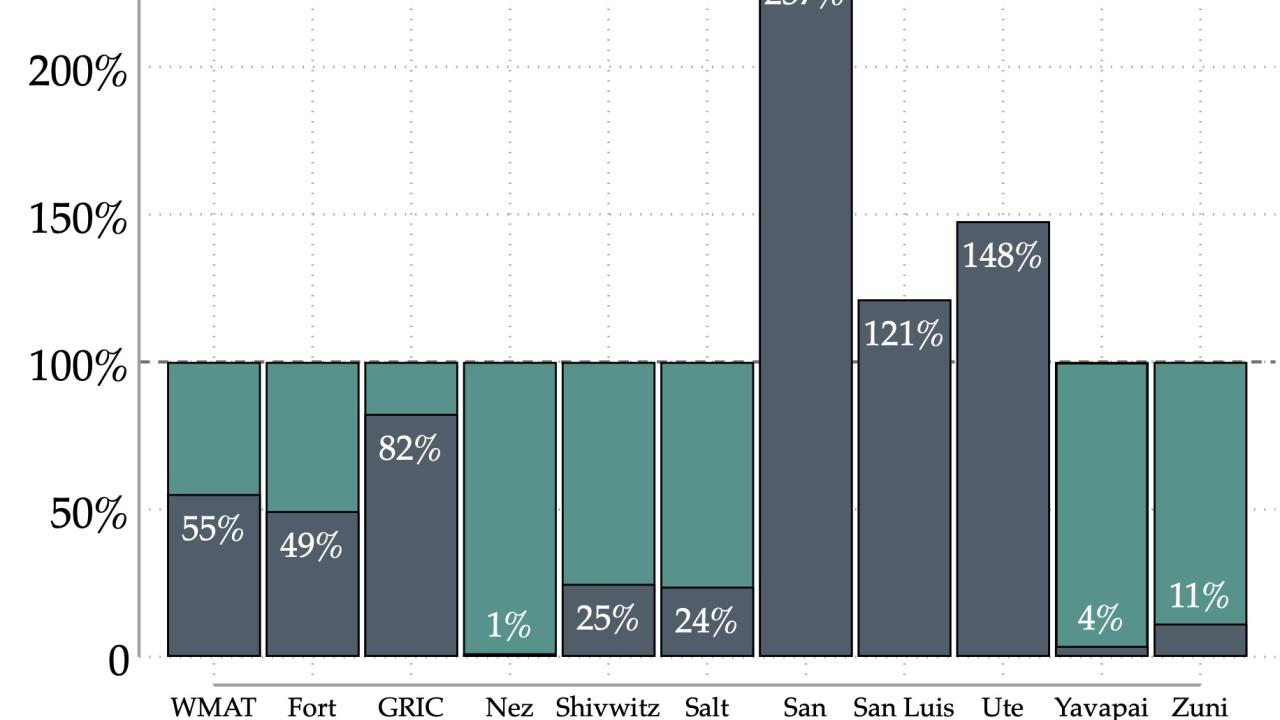
Lab Seminar: Bargaining in the Shadow of Prior Appropriation
Concessions and Tradeoffs in Native American Water Settlement Negotiations
Leslie Sanchez, research economist at the USFS Rocky Mountain Research Station presented on Native American water settlement negotiations. Water use in the western United States remains highly concentrated in irrigated agriculture, in part because the first in time, first in right tenets of appropriative water law have insulated irrigators, as senior appropriators, from legal challenges to their water use. However, the relatively recent recognition of Native American tribes' senior water rights poses a rare legal threat to irrigators, drawing them into negotiations that potentially diminish their water entitlements. This study examines the effects of bargaining power asymmetries on tribal water settlement outcomes to 61 irrigation districts participating in 11 negotiations. An irrigation district's bargaining power is assessed as its relative risk of experiencing shortage under prior appropriation law, or, its fallback option if tribal water claims were resolved in court. I find that as relative shortage risk increases, irrigation districts relinquish larger shares of their water rights, presumably to avoid litigation. Financial compensation secured in exchange is increasing with the political influence of a settlement act's congressional sponsor and with water scarcity. Results show that the legal threat of unresolved tribal water claims is an important mechanism that incentivizes water reallocation to meet new and growing water needs.